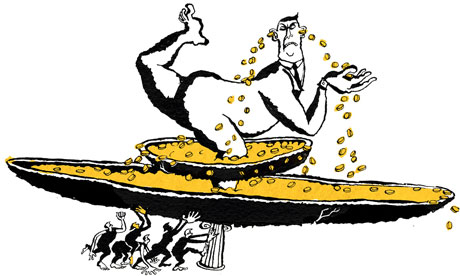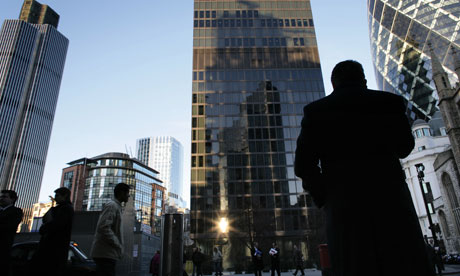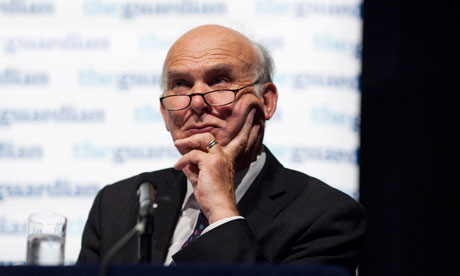When my children were still in primary school, I once let my English stiff upper lip slacken and asked them whether I had ever said how much I loved them. “Yes,” responded my truculent son, “but not with money.”
I am reminded of his precocious attempt to persuade me to apply hard cash to a soft problem every time I hear about efforts to use monetary bonuses to encourage executives to hit non-financial goals.
Reduced emissions, safer factories, better gender balance: companies everywhere are enshrining such creditable objectives as “key performance indicators”, putting a price on the target, and letting greed take care of the rest.
“I think we’ve got to do more to tie the outcomes to compensation, so that it’s meaningful and it’s real,” declared Alexis Herman, a former US labour secretary and Coca-Cola board member, at the recent Women’s Forum for the Economy & Society in Paris, discussing how businesses can become more “human”.
More than once I heard delegates suggest similar solutions in similar terms. The argument went like this: make bonuses dependent on progress, particularly on diversity, because bonuses are “the only language executives understand”.
In that case, it is about time executives learnt another language, because at the highest level, bonus-based pay packages are a mess.
Indeed, there is something perverse about suggesting that companies should hammer away at the vital, sensitive question of how to improve their environmental, social and governance performance using a blunt instrument — the cash bonus — that has helped deepen mistrust of business, and widen inequality.
When misused, monetary bonuses foster selfishness, backbiting, even cheating among employees. Staff who start taking bonuses for granted become resentful if the cash is withdrawn, as banks that have tried to rein in such rewards since the financial crisis have discovered. When bonus packages are too complex, evidence suggests that managers simply ignore the targets altogether.
Adding non-financial goals undeniably complicates what is already a baffling array of executive incentives. Measuring how managers have performed against softer targets is also notoriously hard. That is one reason why, at board level, directors seem to have wide discretion to adjust chief executives’ bonuses for non-financial performance.
Coca-Cola, for example, assessed the 2016 performance of its then chief executive, Muhtar Kent, on no fewer than six strategic initiatives — “People, Planet, Productivity, Partners, Portfolio and Profit”. To decide his bonus, the compensation committee took account not only of his efforts to refranchise US bottling operations, but also to replenish water, reduce sugar and accelerate diversity.
I would question whether Mr Kent pondered for long the impact on his pay of the many non-financial decisions he took. Most of his eventual bonus of $4.1m (out of a total package of $16m), was the outcome of a formula based on financial results rather than other worthy actions.
Leaders should do their best to encourage and harness workers’ love of the job. But cash bonuses can get in the way of this intrinsic motivation to do the right thing.
Ioannis Ioannou, Shelley Xin Li and George Serafeim have studied attempts to meet demanding carbon emission targets.They found using stretch goals alone was quite effective. But adding monetary incentives seemed to undermine companies’ ability to hit the ambitious targets.
Not to say that incentives are worthless. BHP Billiton, the miner, is making progress towards its demanding goal of achieving gender balance by 2025, helped by the fact that bonuses for senior staff are tied to advances towards the objective. Prof Ioannou of London Business School says bonuses spurred on managers whose job description already included cleaning up emissions.
Still, I am queasy about offering cash rewards for good intentions that should be the norm. I don’t like promising cash incentives to my children for excellent exam results, either, let alone for loading the dishwasher or vacuuming their bedrooms.
As Nobel-winning economist Richard Thaler wrote in Misbehaving, it is “overly simplistic” to assume that financial incentives to children (or their parents or teachers) will improve performance. Likewise for many subtler corporate objectives.
In fact, I fear the main effect of focusing executives’ attention on cash bonuses for being cleaner, safer or more inclusive will be to remind them that the most “meaningful and real” rewards are available for the headlong pursuit of pure profit.






